#childrens librarians
Text
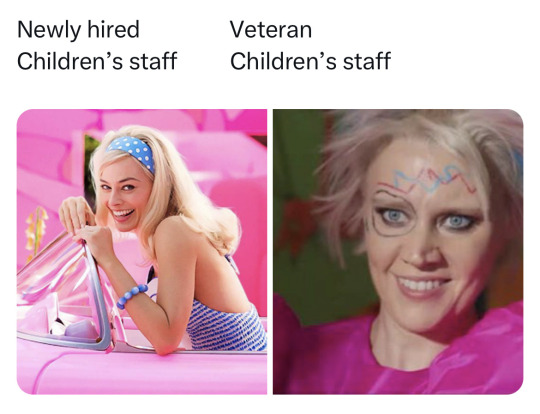
416 notes
·
View notes
Text
Dream of the Endless would be a great professor, but you know what else he'd be amazing at?
Children's Librarian
Kids are full of stories. He would absolutely love to hear them and help nurture that creativity. The really young ones could be read to and have nap time. Parents would love him. Kids would love him. Hob would love him.
also it would just be really cute 😌
#the sandman#dream of the endless#morpheus#hob gadling#dreamling#maybe he's retired#maybe he's being forced to take a break by literally everyone and shares his Dreaming duties with Lucienne#bonus: Hob becomes a preschool/kindergarten teacher for his next identity and they work together#either in the same school or Hob takes his class to the library once a week#also they're married <3#children’s librarian dream
5K notes
·
View notes
Text
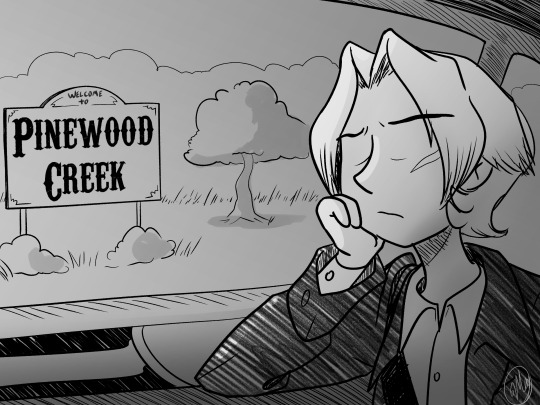
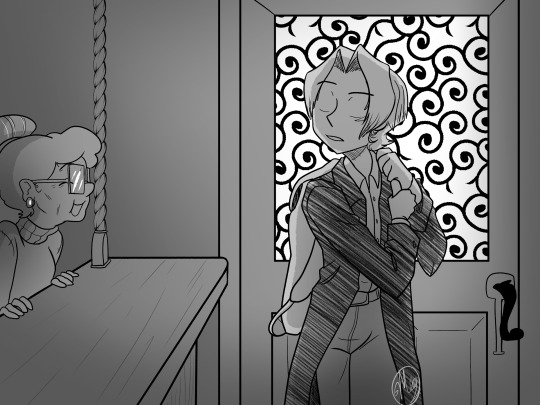
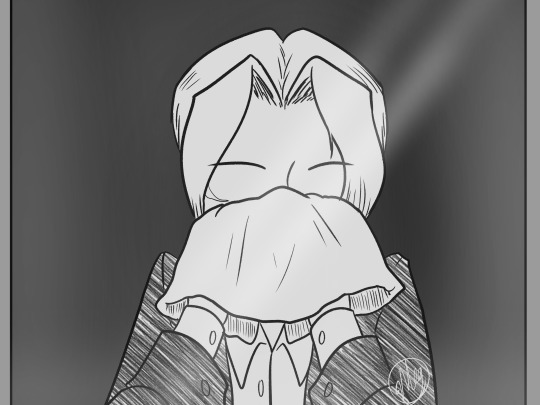

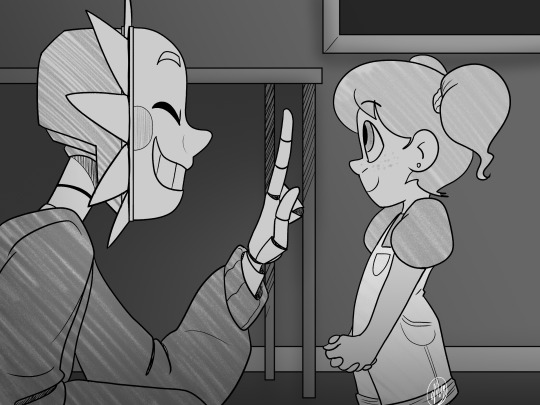
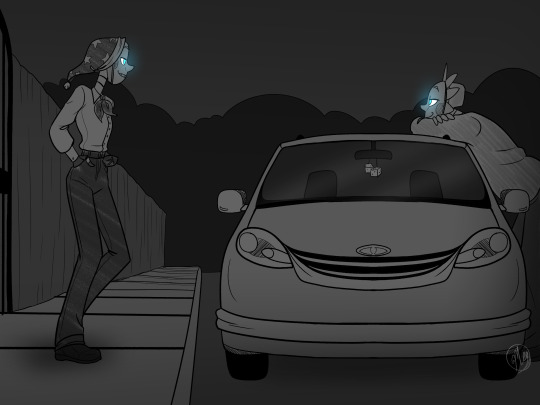
Just realized I don't think I ever posted the illustrations for this story here!
Here are the illustrations for chapter 1!
#dca!serial killer au#serial killer duo#sk boys#sk sun#sk moon#serial killer sun#serial killer moon#illustrations#for the children#ao3#fnaf sun#fnaf moon#fnaf daycare au#fnaf dca au#fnaf daycare attendant#dca au#ftc chapter 1#sun the librarian#moon the security guard#detective y/n#mrs. branson
549 notes
·
View notes
Text
As a children's librarian, people who harass fans of Harry Potter indiscriminately really worry me.
Here's why.
1. The majority of Harry Potter fans are children.
I've had people call me disgusting and scum and an embarrassment to my disabled community. I've been suicide baited and have received death threats. All of this can be heavy enough stuff for an adult to deal with.
And then I think of how most of my 700+ elementary-aged students are huge Harry Potter fans. Because, you know, Harry Potter is a children's series. And they also have access to the internet and social media like TikTok and YouTube.
Now imagine the stuff that's been said to me being said to a kid. Because Harry Potter's main audience are KIDS.
2. This black-and-white mentality isn't healthy.
Very few things in life are cut-and-dry good vs bad. And if you employ this kind of thinking in one area of your life, odds are you'll apply it to other areas too(more on that in a moment).
And people who go out of their way to harass people who like Harry Potter don't seem to particularly care about any context beyond "If you like Harry Potter in any way whatsoever you're scum".
It hasn't mattered when I've pointed out that I absolutely and unequivocally think Rowling's TERF views are awful and scummy and wrong. It hasn't mattered that I try my best to consume the content only in ways that won't monetarily support her, (which kids typically can't do, btw). It hasn't mattered that it's literally in my job description to keep up with children's media to procure content for my patrons as well as to be able to hold conversations with them.
3. Saying "You're not allowed to read this without being harassed" is no different from saying a book should be banned.
This is ironic, seeing as the people doing the harassing are also often up in arms about queerphobic and racist book bans (as they should be) while demanding book bans of their own.
Because in their all-or-nothing way of thinking, book bans are only bad when the "bad" people do it.
No. Book bans are always bad, no exceptions.
Book bans aren't bad because they're banning the "good" books, they're bad because banning access to different ideas is always bad. Because every book has a lesson to teach us (perhaps not the lesson intended by the author, but a lesson nonetheless).
#school librarian#librarylife#libraryland#school libraries#the real life of me#libraries#elementary school#canada#harry potter fandom#harry potter#hp fandom#book banning#purity culture#kidlit#children's literature#children's librarian
706 notes
·
View notes
Text
met the sweetest 13 year old boy at my job who talked my ear off about fallout and he said "I don't understand why Preston gets as much hate as he does. He sends me to get good loot and I always need that. So I appreciate it."
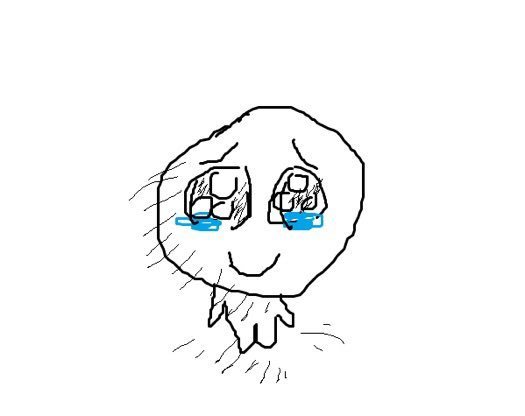
1K notes
·
View notes
Photo

#banned books#steven king tweet#other stuff#i'm a children's librarian and my library does not ban books
1K notes
·
View notes
Text

A librarian reads to children in a park, 1920s.
Photo: NYPL
#vintage New York#1920s#librarians#library#children#reading#reading aloud#vintage NYC#story hour#reading in the park
83 notes
·
View notes
Text
Kid at the reference desk: Do you have any of the Dork Diaries books?
Me: Yeah, they should be... here!
Two minutes later, see the kid walking to checkout like:

Me:

186 notes
·
View notes
Text
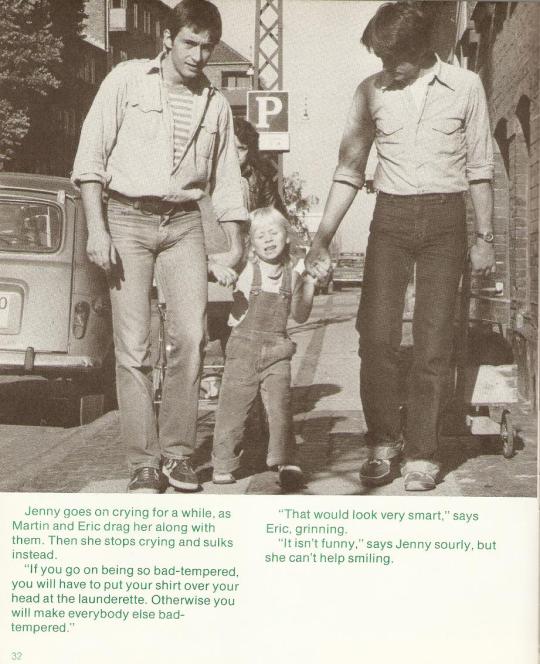
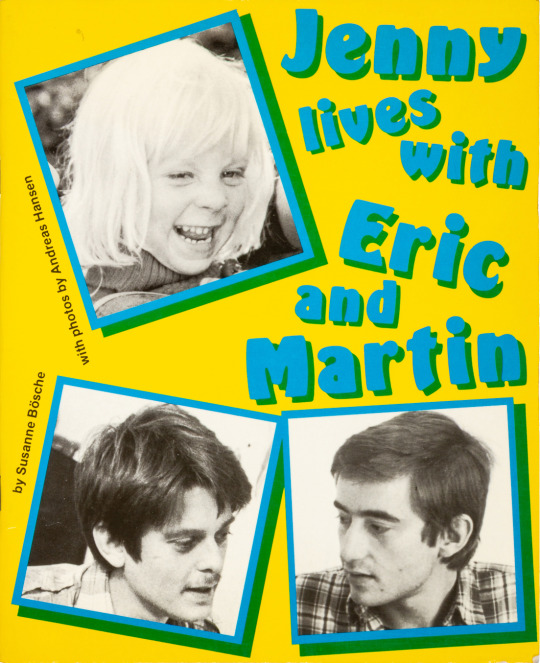

In 1983, the 1981 book Jenny Lives With Eric & Martin, by Danish author Susanne Bösche, was published in England. The book was intended for primary school children and told the story of Jenny, a little girl who lived with her father and his male lover.
It was quickly banned from schools after protests from parents and politicians who feared that it might encourage children to "experiment with homosexuality".
#section 28#clause 28#book ban#book bans#queer history#lgbqti#queer#gay#lgbtq#lgbt#librarians#public libraries#librarian#library#texas#literature#children's literature#kidlit#florida#uk#1980s#1981#1983#1988#80s
218 notes
·
View notes
Text
My dear friends: When a librarian or teacher says "Audiobooks count as reading", we do not literally mean that audiobooks are the same as decoding visual meaning via symbols representing sounds. We mean, among other things:
Audiobooks can expose listeners to new vocabulary and forms of syntax.
Audiobooks can present listeners with long-form fictional narratives with engaging characters, interesting literary devices, and poetic turns of phrase.
Audiobooks can teach listeners new information in a long-form manner that goes into depth or wide breadth on a particular subject or subjects.
Audiobooks can help listeners' verbal comprehension skills.
Audiobooks can do all these things without presenting the same difficulties to blind, low vision, partially sighted, visually impaired, or dyslexic listeners; listeners with ADHD; listeners who experience physical difficulty with holding a book or e-reader; or listeners who are disabled in a host of other ways that a physical book or e-reader might present.
The written word is not specially imbued with magical noble worth above the spoken word, and if you think it is, you may have some ableism and/or racism to deconstruct.
#audiobooks#audiobooks count as reading#librarians of tumblr#adult literacy#children's literacy#reading comprehension#bookblr#booklr#books and reading#librarians#books & libraries#public libraries#reading#child literacy#school librarians
59 notes
·
View notes
Text
WHEN THE CHILDREN’S SUMMER PROGRAM EVENT LETS OUT

190 notes
·
View notes
Text
This little girl in the library shouting, “CAT THE HAT! CAT THE HAT!” was the highlight of my week.
170 notes
·
View notes
Text
From this article:
"The article included photos of several handwritten lists of books that students have requested their libraries bring in. Normally, librarians would order these right away to keep students’ interests, as long they are a good fit for the collection. Now, librarians are holding onto these long lists in the hopes they can order them in the future — in the meantime, though, many students have gotten tired of waiting and stopped going to the library at all."
That's the goal. That's why they're doing this. Don't let them win.
#libraries#school libraries#American libraries#banned books#censorship#reading#children's services#YA services#teen services#literacy#read banned books#that's where the good stuff is#ask your parents or a librarian if they think you're ready#and parents: TALK TO YOUR DAMN KIDS ABOUT WHAT THEY READ#and what they watch see and hear#this is fascism
196 notes
·
View notes
Text
The first chapter for the DCA Serial Killer AU story is up!!!
Huge thanks to @moonlit-dreamers for helping me with this chapter and developing this world! We both hope you guys enjoy!
#dca!serial killer au#serial killer duo#serial killer sun#serial killer moon#sk boys#sk au#sk sun#sk moon#detective y/n#ao3#For the Children#dca au stories#fnaf dca#fnaf daycare au#fnaf daycare attendant#sun the librarian#moon the security guard#fnaf security breach
286 notes
·
View notes
Text
Idea for a nightmare time story: one of those tiktok channels of "clean this old house with me" except it's a hunted house in hatchetfield.
"we found these super old knives, brad thinks they look a little bit like sacrificial daggers but I think that if we clean them a little they can be usable"
"this rug is suuuuper hard to clean, for something reason it's full of blue goo, but it is soooo satisfying"
#starkid#hatchetfield#the guy who didn't like musicals#black friday musical#nerdy prudes must die#nightmare time#the church of the starry children#the lords in black#rambling in librarian
89 notes
·
View notes
Text
Mawkin children undergo several maturity rites before they're granted full tribal citizenship. The first occurs around eight years old, involving a basic academic evaluation and the child's choice between a physical fitness test or a dream-walk.
The evals are simple: how much has the child learned, what do they know, where can we supplement their education, etc. How can we stimulate their curiosity and foster a lifelong love of learning? Have they displayed any skills or passion for any particular subject? How can we encourage their hobbies and interests? Those are the kinds of questions the adults involved in carrying out the evaluation are asking themselves.
The evaluations help parents figure out (or reaffirm what they already know) ways to engage their childrens' interests in a fun or productive way, and how to help their child along the path to success, academic or otherwise. Every child is different: they have their own needs, and while 8 years old isn't old enough for anyone to ascertain exactly what they wanna be when they grow up, the evaluation is a good starting point for the rest of their academic track until their next formative rites.
The next part of the rites is a branching path. The fitness test is typically favored by more outdoorsy or athletic types, as well as children who are afraid of specters or arent very interested in the old ways. That's fine: old people stuff can be boring! The priests go on and on about the ancestors during holidays, but you're eight years-old and you've never seen the ancestors show up before, so big whoop. You've got toys to play and things to learn.
Another general assumption is that children who are likely to grow into steadfast warriors or athletes may pick the fitness test enthusiastically and without thinking about it, but again, this is an evaluation, and the kids are like, eight. Nothing is set in stone. Eight year olds also typically love playing outside.
A number of kids, hearing about all the cool things their elders know and are capable of, or just being curious about what their ancestors might have to teach them, opt for the dream-walk.
The dream-walk involves exposure to psychoactive fumes, but is nonetheless completely safe: the kid is monitored and made as comfortable as possible.
The dream-walk is overseen by priests and doctors. The burners are lit and the trial-goer falls asleep, entering a state similar to lucid dreaming.
Everyone's experience is different. Some kids have profound surreal experiences: others spend the entire time sitting at a table with a long-dead ancestor having a meal. Some kids are shown events from the past by an old ghost: some even experience said event from the perspective of someone who was there when it happened.
For others, the dream is of an old-fashioned hunt, typically guided by a departed grandparent or neighbor. It's not unusual for Mawkin kids to have experienced the act of hunting for food or sport by this point in their lives: many who hunt take their babies out with them on their backs. The quarry during the dream-walk, however, is typically more than your mundane game beast.
Tribal scholars and doctors of psychology have posited that the dream walk largely reflects the experiences of those involved. Formative memories and strong feelings, they believe, greatly affect the appearance of conjured apparitions in the dream. If a kid is fighting any demons at eight years old or harbor any powerful fears, they may very well be forced to face them head-on during this trial.
Therein lies the value of the dream-walk: it's not just a curiosity to get the kids to engage with cultural practices of yore, it has utility in teaching children valuable lessons through experience without actually making them fight the six-eyed serpent of a hundred and seventeen mouths. And they're usually not facing it alone: the ancestors quite literally walk with plenty of kids during these trials.
There are some truths a given child must face alone, and plenty do. But when they wake, they will find themselves among familiar company, the sweet smell of wood smoke permeating the air and a feast awaiting back home to celebrate their first milestone towards becoming an adult.
Some kids don't fight any major bosses or experience the heat death of the universe through the eyes of a slug, instead deriving value from the dream-walk in the form of sensory-guided introspection. The lesson they learn may not even be apparent to them until six years down the line. It doesn't have to be deep: it can just be an experience that gives then a new perspective on the world.
The senses are heightened supremely during the dream-walk, allowing the dreamer to experience the world in a whole new way. Tasting color, feeling the vibration of every sound beneath one's skin, perceiving the shape of every smell. Even if the kid walks away thinking "huh, I've never experienced the world that way before", the trial will have been a success. In the very least, a child should come out of that dark room with a unique memory for them to examine later on.
Several minor rituals and evaluations occur around twelve and fifteen years, but the foremost citizenship rites occur around seventeen, when an individual's stomach is strong enough to handle sap wine in greater quantities without suffering catastrophic liver failure. The dream-walk is a requirement this time around, as well as a combat test. The combat test is the actual rite that determines one's status as an adult: the mandatory dream-walk occurs beforehand as a way to shed all doubts about the strength of one's resolve if they have any insecurities, and perhaps gain some personal insight in the process. Introspection assisted by psychoactive substances.
You may be wondering how those with varying degrees of disability come of age if they can't engage in the rite of combat. There are alternatives to the combat test if the participant doesn't feel able enough to fight, or otherwise can't exert themselves without experiencing undue pain and discomfort.
There are alternative rites for individuals of every combination of physical and cognitive impairment, and all are treated with the same gravity and dignity afforded to the typical rites. Poetry recitals, music, research projects, an oath of maturity: these are a few examples of things disabled Mawkin have done to establish their claim to adulthood in place of the rite of combat. An individual doesn't have to be "good" at something: they just have to show that they accept the responsibility that comes with being an adult, or are otherwise committed to their community and the tribe at large.
For some people, that commitment comes in the form of thriving to the best of their ability. Surviving to the next day, striving for tomorrow to hurt a little less than yesterday. It doesn't matter whether they can "contribute" or be a "productive member of society": all are one, and one serves all. The Mawkin take community very seriously. There's an age-old adage that says something to the effect of "if one is suffering, all are injured", and "when one is deprived of dignity, we are all cast naked face-down into the mud".
Anyways, that's how juvenile Mawkin are granted all the rights, responsibilities and privileges that come saddled with being an adult. It's worth noting that most of these rites line up with a typical Chozo's molting cycle, with the final rites occurring just as young warriors are shaking off the last loose feathers of their old coat and displaying their first (clear) adult patterns.
#mawkin#chozo#headcanons#txt#the dream-walk not only gives children a stronger bond with the honored dead#it gives them a window into the lives of the priesthood#some are intrigued by what they experience and eventually dedicate themselves to learning about and preservong the old#traditions while ushering in new waves of progress and advancement#preserving the old while welcoming the new.#i put emphasis on the old and the new bevause using drugs to see ghosts specifically is a very very old practice#some traditions evolved with technology and the Mawkin's migration to ZDR: others remained relatively untouched#most people keep some sort of house shrine or curio to honor their ancestors: only the priests and people who need advice#are getting zonked off their gourd to talk to ghosts#and most normal people aren't even given the chance to commune with the dead outside of the maturity rites#some of the blends these priests are burning would knock a grown unaccustomed warrior flat on their back#straight into concussion territory#they are not for the faint of heart.#to clarify inhaling fumes to see ghosts isn't all the priests do. but it's part of the job for a specific subset of them#the dead walk among the mawkin ans their wisdom is appreciated#priests are historicans lorekeepers and storytellers as well as dead-talkers#they're librarians and funeral directors and community hermits and warrior monks
31 notes
·
View notes